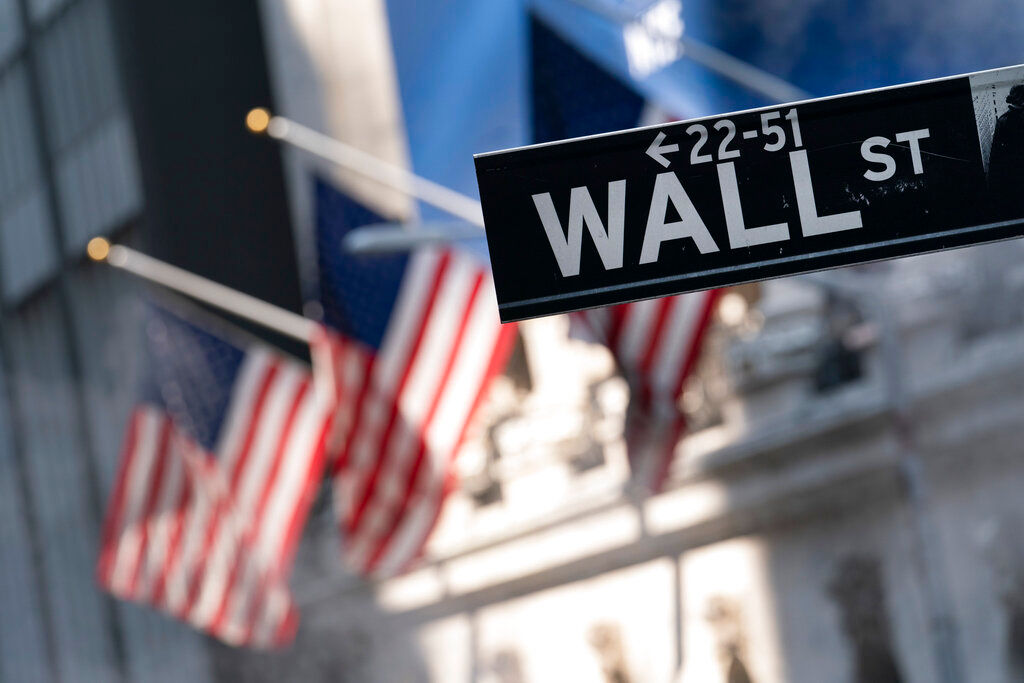Stocks rose significantly in morning trading on Wall Street
Thursday, putting major indexes on track for weekly gains.
The S&P 500 rose 32.46 points or 0.84% to 3,877.54 as
of 10:15 a.m. Eastern time zone. The Dow Jones Industrial Average rose 159.50
points or 0.51% to 31,197.18. The Nasdaq composite rose 156.34 points or 1.38%
to 11,518.
Also Read | Elon Musk fathered twins with top executive Shivon Zillis in 2021: Report
Small-company stocks outperformed the broader market a clue
that some investors remain confident in economic growth. The Russell 2000 rose
1.9%.
Technology stocks were doing much of the heavy lifting.
Apple rose 1.9%.
The energy sector also saw gains as US crude oil prices
jumped 4.9% in a reversal from Tuesday’s slump. Exxon Mobil is up 3.2%.
Also Read | How to survive a market crash
Major indexes are moving towards weekly gains in what has
been turbulent trading over the last several months.
Though, the bond market remained concerned over a potential
recession with new data showing that the number of Americans applying for
unemployment benefits topped the 230,000 mark for the fifth consecutive week.
While claims remain low, last week was the highest level of claims in almost
six months.
Also Read | What are the Digital Market and Digital Services Acts?
The 10-year Treasury yields rose to 2.96% from 2.91% late
Wednesday. The yield on the two-year Treasury is above the 10-year yield, a
relatively rare thing seen by some investors as an ominous sign.
The US government on Wednesday reported that employers
advertised fewer jobs in May following signs that the economy is weakening and
there are already signs that retailers have pulled back on hiring.
Also Read | Great Depression to COVID: Top 5 market crashes in American history
A weakening of the broader job market, which has stood
strong through the pandemic recovery, could indicate that inflation is cooling
off. Investors will get more details on Friday when the June jobs report is
released.
Traders are trying to determine whether a recession is on
the horizon as the Federal Reserve aggressively raises interest rates to temper
pervasive inflation. Businesses are getting severely impacted by higher costs
because of supply chain problems and have hiked prices on everything from food
to clothing.
Also Read | European Union makes historic tech ruling, enforcement worries remain
Consumers have been pulling back on spending as inflation
puts a tighter squeeze on budgets. The Russia-Ukraine war sent energy prices
surging in 2022, resulting in record gasoline prices in the US. Pain at the
pump has only worsened the broader impact of inflation, though there are hints
that gasoline prices have begun to decline.
Also Read | ED summons CoinDCX, Coinswitch Kuber to probe FEMA violations: report
The primary concern is that the Fed’s rate hikes could go
too far in slowing economic growth and actually bring on a recession. After
last month’s meeting, the Fed hiked its rate by three-quarters of a point to a
range of 1.5% to 1.75%, the biggest single increase in nearly three decades,
and indicated that further large hikes would likely be needed.







